Our Beliefs...
The Chalice is the symbol of the Disciples of Christ denomination, of which FCC is affiliated.
All means all
We welcome all God’s children though differing in race, gender, age, sexual orientation, gender identity, nationality, ethnicity, marital status, physical or mental ability, political stance or theological perspective, and we affirm the faith, baptism and spiritual gifts of all Christians celebrating that all people are part of God’s good creation.
The weekly observance of the Lord's Supper
Disciples' life is centered at the table. Through communion we are connected to one another and to God through our Lord Jesus Christ.
Believer's baptism by immersion
Following the earliest tradition of the church, we demonstrate our commitment to God by dramatic action, letting the waters of our baptism give witness to God's grace upon us.
Open membership
Recognizing that the traditions of the whole church are many and varied, we do not insist that our baptismal practice is the only one that is valid. We know that baptism is God's action far more than our own.
An attitude of tolerance and a rejection of creeds as tests of faith
We celebrate diversity as strength rather than weakness, and do not expect everyone's interpretation of the Bible or the Christian life to be identical.
The importance of scripture
We believe that the Bible is the inspired word of God and is best heard and understood within the community of faith with the diverse insight that context provides.
Congregational yet voluntarily connectional
We give the local congregation authority over their life and ministries, and yet share resources freely with a connected church, our denomination, knowing that the mission of the church is not just local.
The inclusion of the leadership of women
We believe that God provides spiritual gifts to all and do not restrict any office or role in the life of the church by gender.
An emphasis on lay leadership
Aside from performing weddings which is regulated by the state, lay persons in our church are permitted and encouraged to do all things, including presiding and offering the Eucharistic prayers at the Lord's Table, often restricted to ordained clergy in other denominations.
An educated clergy
We set educational and professional standards for ministers—licensed and ordained, and hold our clergy to ethical accountability through denominational oversight.
A priority on ecumenical life
Disciples earnestly pray and strive for the unity of the church and attempt to work in ways that bridge the separation of Christ's body.

